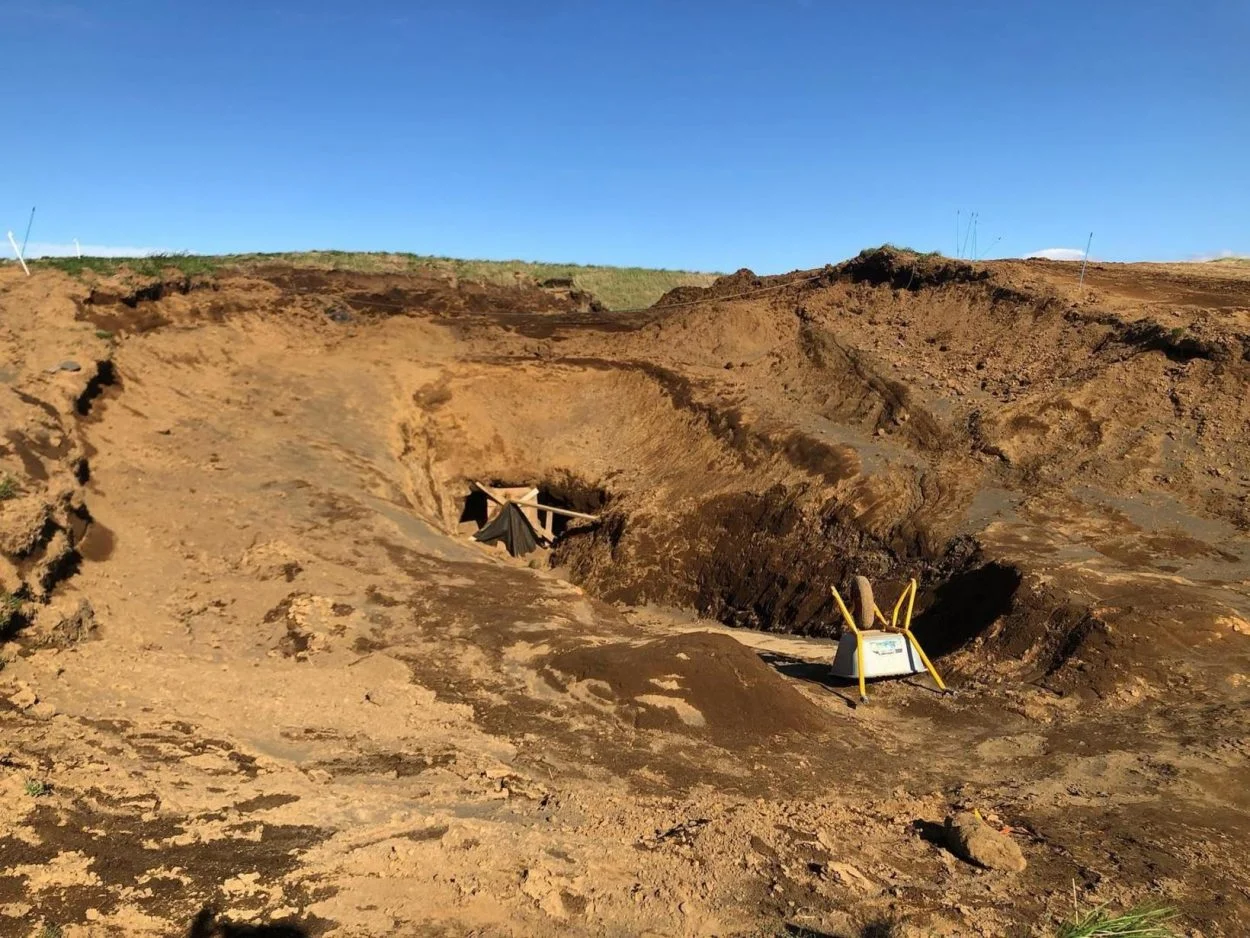Excavations of a Viking-era site in Iceland has revealed a previously unknown man-made cave.
Archaeologists from the Archaeological Institute of Iceland have been excavating near the small village of Oddi in Rangárvellir, Iceland.
Oddi was the seat of the Oddaverjar, a powerful clan in the medieval Icelandic Commonwealth. One of the most famous clan members was Sæmundur the Learned (AD 1056-1133) who wrote the early histories of the Norwegian Kings. The settlement developed into a major centre for culture and learning, with Iceland’s patron saint, Þorlákur Þórhallsson, receiving his education at Oddi from the age of nine (AD 1142-1147) .
Man-made caves at Oddi were first discovered back in 2018. The latest research project, part of a two-year study, has now discovered a much larger cave interconnected to the wider cave system.
Archaeologists believe that the new cave may be a nautahellir, a medieval stall used for cattle and horses. Such caves are mentioned in Bishop Þorlákur’s “Legends of Saints” from AD 1210-1250, where he describes how a nautahellir collapsed with 12 bulls still inside, with only one of the animals being rescued from the rubble.
Archaeologist Kristborg Þórsdóttir said: “Although it’s older than that, it’s likely that [the cave] was used for livestock. Whether it was for that specific bull, we don’t know. But the history of its use obviously goes back further than we’ve managed to trace yet.”
Excavations has been a slow and hazardous process as the cave was cut from soft sandstone that is porous and prone to collapse. “We still have deeper to dig, we’re just working on making conditions safe” said Kristborg.
Header Image Credit : Archaeological Institute of Iceland





